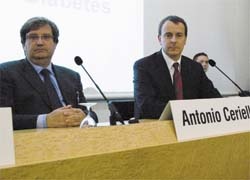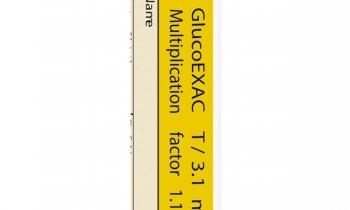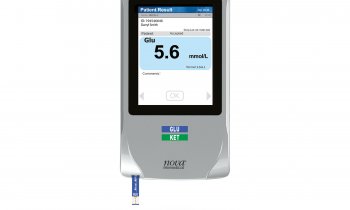Diabetes management
During the 2nd European Workshop on Diabetes, hosted by Bayer HealthCare Diabetes Care, experts called for uncompromising management of diabetes.

Professor Oliver Schnell, of the Diabetes Research Institute, Munich, stressed the value of blood glucose testing. Numerous studies have shown that regular self-testing makes a significant contribution to improving outcomes and management of complications.
The special significance of post-prandial blood glucose values in this was emphasized by Professor Antonio Ceriello, of the Clinical Sciences Research Institute, Warwick Medical School, UK. Unlike those of healthy people, the blood glucose levels of people with diabetes fall only slowly and often insufficiently after glucose uptake – a phenomenon that the International Diabetes Federation has taken into account in its Guidelines for the management of post-meal glucose. Professor Ceriello, Chair of the IDF Steering Committee, summarized its recommendations as follows:
l Post-meal hyperglycemia is harmful and should be addressed.
l A variety of both non-pharmacological and pharmacological therapies should be considered to target post-meal plasma glucose.
l Two-hour post-meal plasma glucose should not exceed 7.8 mmol/l (140 mg/dl), as long as hypoglycemia is avoided.
l Self-monitoring of blood glucose (SMBG) should be considered because it is currently the most practical method for monitoring post-meal glycaemia.
l Efficacy of treatment regimens should be monitored as frequently as needed to guide therapy towards achieving post-meal plasma glucose target.
01.07.2008










